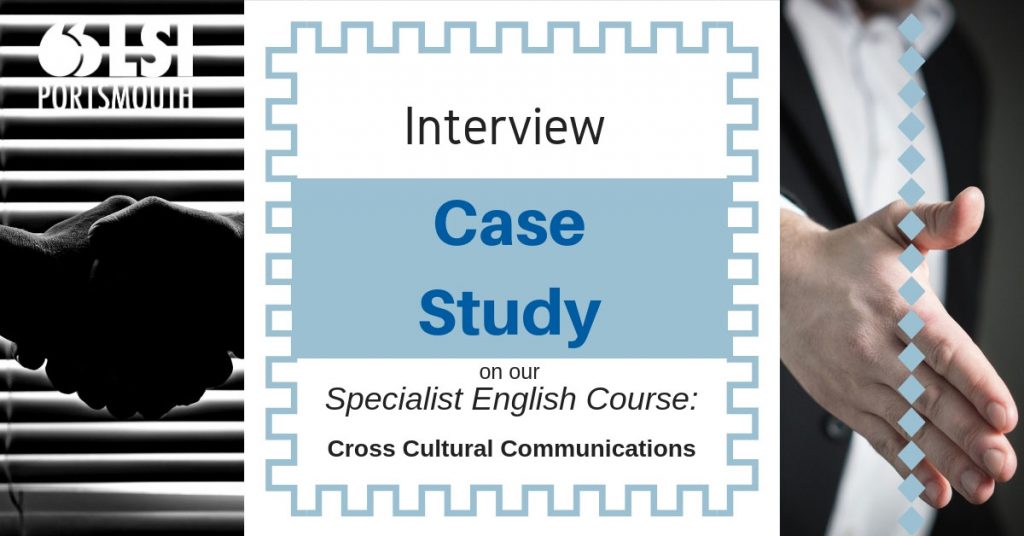
Cross Cultural Communication
Last year Josefina from France came to the school to follow our cross cultural communication course. We asked her if she would tell us about her experience:
Interviewee: My name’s Josefina and I’m from France.
Interviewer: What do you do and who do you work for Josefina?
Interviewee: I’m a Sales Manager, I work for a French car company.
Interviewer: How long have you worked there for?
Interviewee: Only two years.
Interviewer: Did you work for another company before that?
Interviewee: Yes, I did. I worked in a completely different field before moving into car manufacturing, telecommunications in fact, but always in sales.
Interviewer: What training did you do for these two jobs?
Interviewee: Well, I left school with a BAC and worked my way up, but I’ve always done professional development courses throughout my career, in technical skills and soft skills.
Interviewer: Could you give me a description of your present job and why you need English?
Interviewee: I communicate via email and teleconference with my global colleagues. I attend meetings where I make presentations. I take decisions about sales targets and methods and I often travel to visit our agents in Asia. We are currently trying to standardise our branding so that it appeals to a more global audience, so a lot of my work is around that at the moment. It’s very interesting but it’s also very challenging. Well, it’s our company language, officially, but also because I work with our local agents in Asia in order to maximise sales in those regions, and I don’t speak Japanese or Chinese or Korean, so we communicate in English.
Interviewer: What things has your course focussed on?
Interviewee: This course has specifically focussed on intercultural communication. So, we’ve looked at the differences between France and the Asian countries I deal with in terms of business culture. It’s been very important for me to analyse my culture too. This course has taught me that the only way to operate successfully in another culture is to understand your own better. So, we’ve looked at issues such as gender roles, hospitality, hierarchy and we’ve had lots of interesting discussions with case studies and role-plays.
Interviewer: How has this course helped you and would you recommend this course to someone else in your position?
Interviewee: I now feel much better equipped to deal with Asian people and to get them on my side if you know what I mean. For example, I didn’t know how important business cards are to the Japanese or that seniority is a key concept for the Chinese. Once you know these things everything goes more smoothly. Yes, I definitely would. I now realise that some of the problems I have been having in my work were not to do with the language but to do with intercultural awareness.
Interviewer: Thank you very much Josefina, we really appreciate this and would like to wish you the best of luck in the future.
To see why we believe cross cultural communication is so important – have a look at this lovely little video that shows how important it is to understand what is going on.
For more information please contact us or have a look here.
